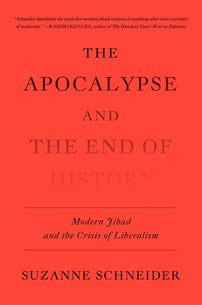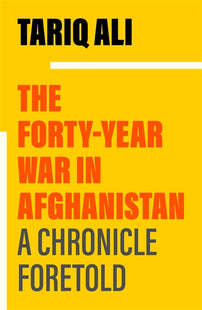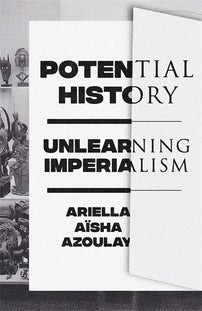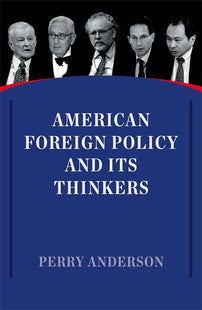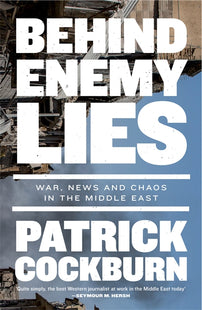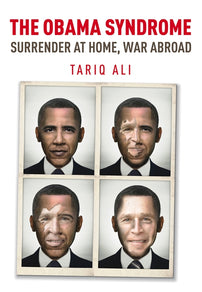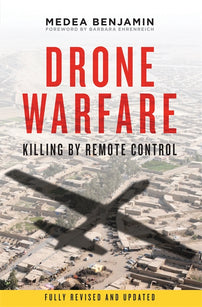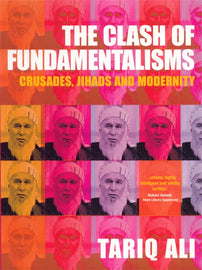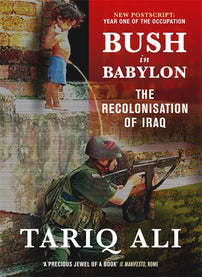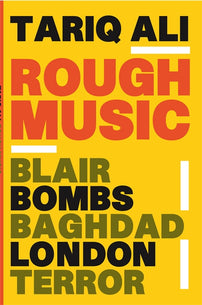US Empire 20 Years after 9/11: A Reading List
Essential readings on the United States' imperialist ventures in the Middle East by Deepa Kumar, Suzanne Schneider, and Andrew Cockburn.
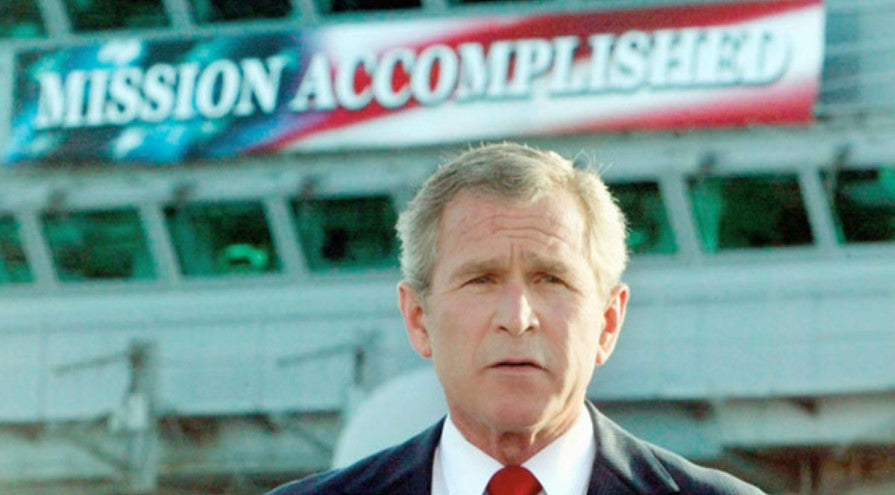
Twenty years after 9/11, the event that justified the horrific wars on Iraq and Afghanistan, the US is finally moving its troops out of Afghanistan. What explains the US drive towards imperialist ventures in the Middle East? How do we understand the Islamophobia that swept the US in the wake of 9/11? Who is profiting from all these forever wars?
We compiled a list of some of our titles that provide answers to these questions, all 40% off until September 30, 23:59 EST as part of our Back to University/School sale.
In this incisive account, leading scholar of Islamophobia Deepa Kumar traces the history of anti-Muslim racism from the early modern era to the "War on Terror." Importantly, Kumar contends that Islamophobia is best understood as racism rather than as religious intolerance. An innovative analysis of anti-Muslim racism and empire, Kumar argues that empire creates the conditions for anti-Muslim racism and that Islamophobia in turn sustains empire.
[book-strip index="2" style="buy"]In this authoritative, accessible study, historian Suzanne Schneider examines the politics and ideology of the Islamic State (better known as ISIS). Schneider argues that today’s jihad is not the residue from a less enlightened time, nor does it have much in common with its classical or medieval form, but it does bear a striking resemblance to the reactionary political formations and acts of spectacular violence that are upending life in Western democracies. From authoritarian populism to mass shootings, xenophobic nationalism, and the allure of conspiratorial thinking, Schneider argues that modern jihad is not the antithesis to western neoliberalism, but rather a dark reflection of its inner logic.
[book-strip index="3" style="buy"]The story of NATO’s disastrous occupation of Afghanistan, and how it repeated the mistakes of the Soviet occupation which preceded it.
[book-strip index="4" style="buy"]The American war machine can only be understood in terms of the “private passions” and “interests” of those who control it—principally a passionate interest in money. Thus, as he witheringly reports, Washington expanded NATO to satisfy an arms manufacturer’s urgent financial requirements; the US Navy’s Pacific fleet deployments were for years dictated by a corrupt contractor who bribed high-ranking officers with cash and prostitutes; senior marine commanders agreed to a troop surge in Afghanistan in 2017 “because it will do us good at budget time.”
[book-strip index="5" style="buy"]By practicing what she calls potential history, Azoulay argues that we can still refuse the original imperial violence that shattered communities, lives, and worlds, from native peoples in the Americas at the moment of conquest to the Congo ruled by Belgium's brutal King Léopold II, from dispossessed Palestinians in 1948 to displaced refugees in our own day. In Potential History, Azoulay travels alongside historical companions—an old Palestinian man who refused to leave his village in 1948, an anonymous woman in war-ravaged Berlin, looted objects and documents torn from their worlds and now housed in archives and museums—to chart the ways imperialism has sought to order time, space, and politics.
[book-strip index="6" style="buy"]The Age of Jihad charts the turmoil of today’s Middle East and the devastating role the West has played in the region from 2001 to the present. Beginning with the US-led invasion of Afghanistan, Cockburn explores the vast geopolitical struggle that is the Sunni–Shia conflict, a clash that shapes the war on terror, western military interventions, the evolution of the insurgency, the civil wars in Yemen, Libya and Syria, the Arab Spring, the fall of regional dictators, and the rise of Islamic State.
[book-strip index="7" style="buy"]Feminist Christine Delphy co-founded the journal Nouvelles questions féministes with Simone de Beauvoir in the 1970s and became one of the most influential figures in French feminism. Today, Delphy remains a prominent and controversial feminist thinker, a rare public voice denouncing the racist motivations of the government’s 2011 ban of the Muslim veil. Castigating humanitarian liberals for demanding the cultural assimilation of the women they are purporting to “save,” Delphy shows how criminalizing Islam in the name of feminism is fundamentally paradoxical.
[book-strip index="8" style="buy"]Ever since the First World War, socialists have considered imperialism a calamity: responsible for militarism, economic stagnation, and assaults on democracy in the metropolitan countries, an impediment to economic and cultural development in the Third World. So widespread has this view become that it is shared, in its essentials, not only by Marxists but also by an entire school of liberal development economists. Bill Warren breaks with this traditional outlook, arguing that the theory of imperialism, one of Marxism's most influential concepts, is not only contradicted by the facts, but has diluted and distorted Marxism itself.
[book-strip index="9" style="buy"]Since the birth of the nation, impulses of empire have been close to the heart of the United States. How these urges interact with the way the country understands itself, and the nature of the divergent interests at work in the unfolding of American foreign policy, is a subject much debated and still obscure. In a fresh look at the topic, Anderson charts the intertwined historical development of America’s imperial reach and its role as the general guarantor of capital.
[book-strip index="10" style="buy"]In this urgent and timely book, Patrick Cockburn writes the first draft of the history of the current crisis in the Middle East. Here he charts the period from the recapture of Mosul in 2017 to Turkey’s attack on Kurdish territory in November 2019, and recounts the new phase in the wars of disintegration that have plagued the region. The ground battle with the caliphate is perhaps over, but was this the end of the conflict that has scarred these nations for decades?
[book-strip index="11" style="buy"]A prescient dissection of Obama’s overseas escalation and domestic retreat, fully updated.
[book-strip index="12" style="buy"]In The Rise of Islamic State, Patrick Cockburn describes the conflicts behind a dramatic unraveling of US foreign policy. He shows how the West created the conditions for ISIS’s explosive success by stoking the war in Syria. The West—the US and NATO in particular—underestimated the militants’ potential until it was too late and failed to act against jihadi sponsors in Saudi Arabia, Turkey and Pakistan.
[book-strip index="13" style="buy"]CODEPINK and Global Exchange cofounder Medea Benjamin provides the first extensive analysis of who is producing the drones, where they are being used, who controls these unmanned planes, and what are the legal and moral implications of their use. In vivid, readable style, this book also looks at what activists, lawyers, and scientists across the globe are doing to ground these weapons. Benjamin argues that the assassinations we are carrying out from the air will come back to haunt us when others start doing the same thing—to us.
[book-strip index="14" style="buy"]Based on several years of reporting, Irregular Army includes extensive interviews with extremist veterans and leaders of far-right hate groups—who spoke openly of their eagerness to have their followers acquire military training for a coming domestic race war. As a report commissioned by the Department of Defense itself put it, “Effectively, the military has a ‘don’t ask, don’t tell’ policy pertaining to extremism.”
[book-strip index="15" style="buy"]Tariq Ali dissects both Islamic and Western fundamentalism.
[book-strip index="16" style="buy"]The Imperial Messenger reveals the true value of this media darling, a risible writer whose success tells us much about the failures of contemporary journalism. Belén Fernández dissects the Friedman corpus with wit and journalistic savvy to expose newsroom practices that favor macho rhetoric over serious inquiry, a pacified readership over an empowered one, and reductionist analysis over integrity.
[book-strip index="17" style="buy"]With The Making of an Atlantic Ruling Class, Kees van der Pijl put class formation at the heart of our understanding of world politics and the global economy. This landmark study dissects one of the most decisive phenomena of the twentieth century—the rise of an Atlantic ruling class of multinational banks and corporations. A new preface by the author evaluates the book's significance in the light of recent political and economic developments.
[book-strip index="18" style="buy"]The bestselling history of the resistance in Iraq that vitalized the antiwar movement, fully updated.
[book-strip index="19" style="buy"]A seething report on the explosive state of affairs in Britain, after Blair's alliance with Bush.

